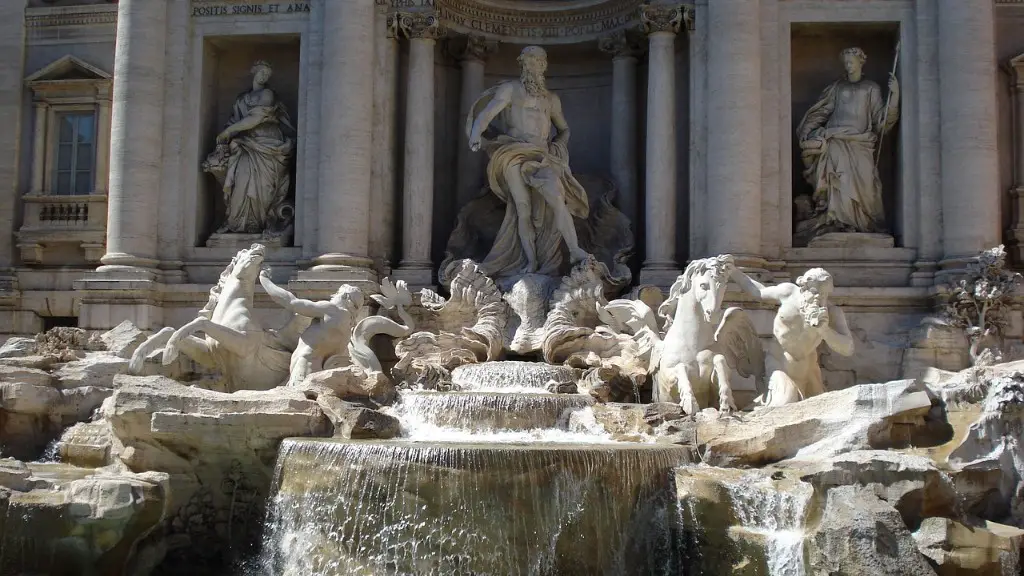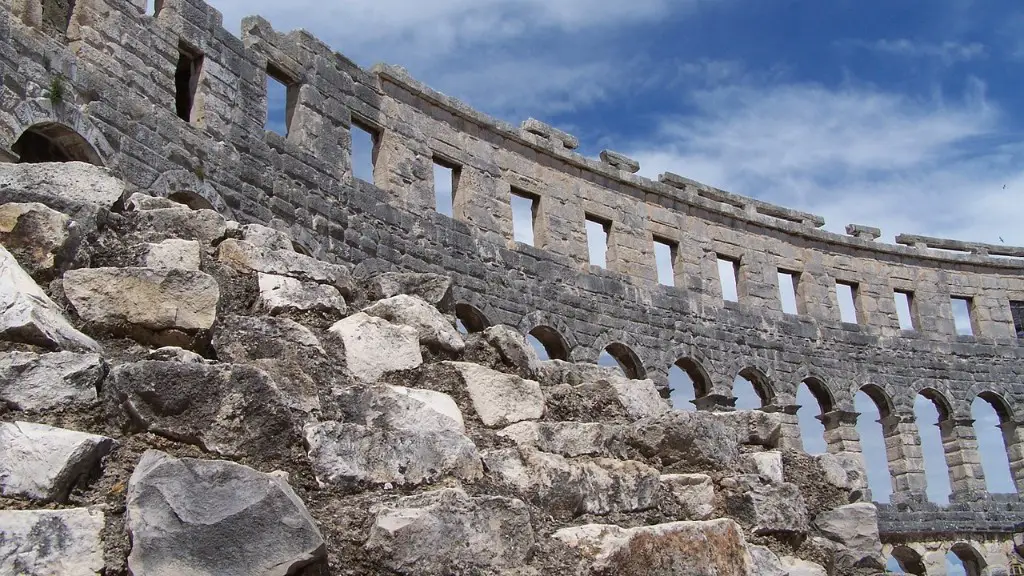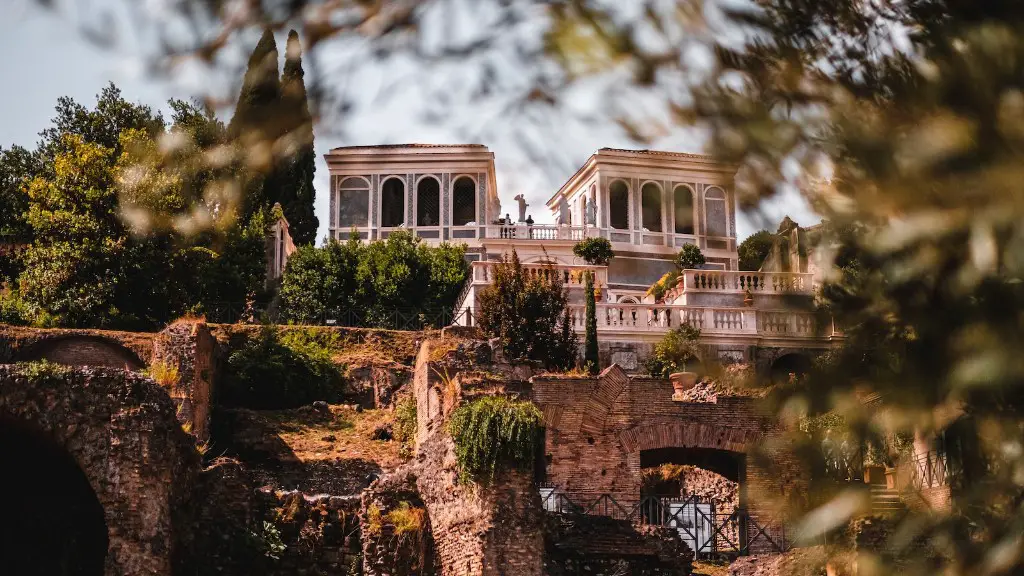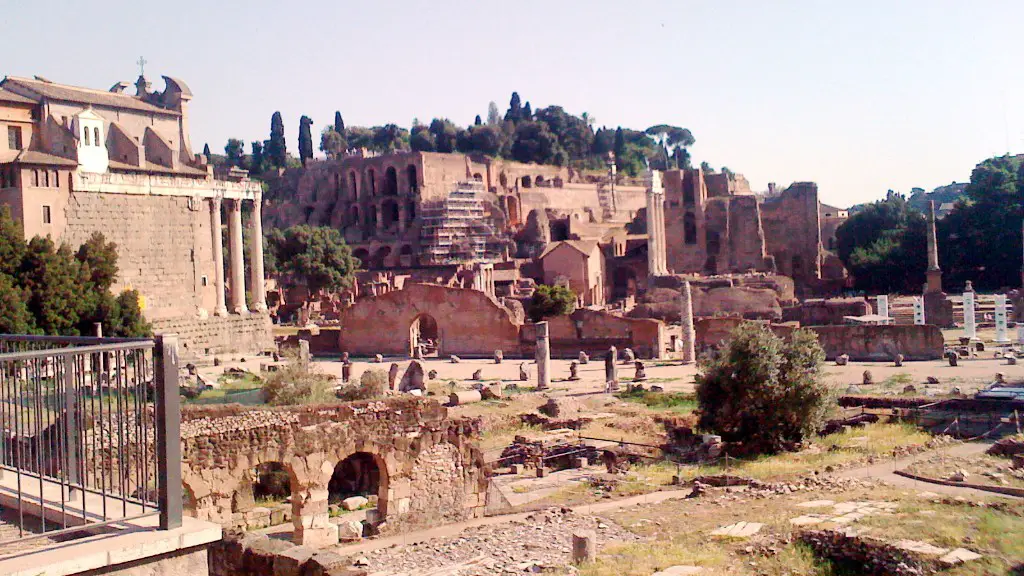The Origins of Ancient Roman Worship
The origins of ancient Roman worship trace back over two thousand years. The people of Rome first began worshipping a number of different gods and goddesses in pre-Christian times. The worship of these deities was a mix of rites, ceremonies and superstitious practices that developed over time. In the beginning, it was believed that the gods and goddesses who were being worshipped had the power to affect the fate of the city-state of Rome and its citizens.
At the heart of the Roman religion was the belief that the gods and goddesses had a powerful influence over the everyday lives of the people. This belief led to the development of festivals, sacrifices and offerings to appease the gods. In particular, certain gods and goddesses were revered as patron deities. As Rome’s power and influence grew, so did its pantheon of gods and goddesses.
Perhaps the most iconic of the Roman gods and goddesses was Jupiter, the supreme god who ruled over the heavens and heavens. Other prominent figures included Juno, his wife and the goddess of marriage, and the war god Mars. Other gods and goddesses who were revered in the ancient Roman world included the goddess of love, beauty and fertility Venus, the god of wine, Bacchus, and the messenger god Mercury, who was believed to carry messages between gods and humans.
The Romans had no concept of monotheism, nor did they fully understand the concept of an omnipotent God as espoused in some later religions. Instead, the gods and goddesses were believed to be forces of nature and of human emotion, offering protection and guidance, or imposing punishment when necessary.
The cult of the gods and goddesses was spread across Rome. Temples erected in their honor could be found in every city and village in the Roman Empire. The priests who conducted the worship of the gods and goddesses were highly regarded, and had a great deal of influence in public affairs. They were responsible for carrying out sacrifices and other religious rites on behalf of the people.
In addition to the gods and goddesses, the ancient Romans also worshiped a number of spirits and heros. Some of these were heros from Roman mythology, while others were regarded as protectors of Rome and of its citizens. These figures were often seen as embodying virtue and strength, and were honored by offerings of flowers and food.
The worship of the gods and goddesses, as well as the other spirits and heros, was an integral part of ancient Roman life. It was thought that the gods had a role to play in ensuring prosperity, good health and success, and in protecting the people from danger. As such, the rituals surrounding their worship were taken very seriously, and offerings of food, incense and wine were offered to appease the gods.
The Influence of Christianity on Ancient Roman Worship
The introduction of Christianity to the Roman Empire had a profound impact on the practice of ancient Roman worship. The traditional gods and goddesses were gradually replaced by the monotheistic God of Christianity. Unlike the earlier gods, Christianity’s God was seen as omnipotent and all-powerful, with the ability to intervene in earthly affairs.
Slowly, the public practice of the old gods and goddesses began to die out, and those who still held on to the old beliefs were seen as heretics. As Christianity spread, so did its teachings, and its tenets became the basis for law in the Roman Empire. By the fourth century, Christianity had become the official religion of the Roman Empire.
Despite the rise of Christianity, aspects of ancient Roman worship did manage to survive. The ancient gods and goddesses were regarded as symbols of virtue, strength and guidance. This reverence for the divine has been passed down through the centuries and persists to this day, although it is now recognized in different forms and manifestations.
Today, many of the traditional gods and goddesses are still recognized in popular culture. Jupiter, Juno, Mars, Venus and Mercury all feature prominently in books, films and television shows. Additionally, some of the ancient Roman religious ceremonies continue to be practiced, such as the offering of food and wine to protect the home and its inhabitants.
The Impact of Ancient Roman Worship on Modern Society
The influence of ancient Roman worship on modern society can be seen in a number of ways. As mentioned previously, many aspects of ancient Roman worship still exist in one form or another in popular culture. Additionally, the practice of offering sacrifices and dedicating temples to gods and goddesses is still prevalent in many societies around the world.
Another example of the permeation of ancient Rome into modern society is in the law. Roman law, which was heavily influenced by the beliefs of ancient Rome, is still used in many countries today. Additionally, the Roman republican system of government, in which citizens were represented in a senate, is still seen in a number of modern democracies.
Overall, it is clear that the beliefs and practices of ancient Rome still have a significant influence on many aspects of modern life. While many of the gods and goddesses that were worshipped in ancient Rome have disappeared, they still provide an important reminder of the power of faith and the strength of tradition.
Conclusion
The worship of the gods and goddesses in ancient Rome was an important part of life for the people of that era. While many of their beliefs and practices have been lost to time, it is clear that their influence still remains in many aspects of modern culture and society. There are still remnants of the ancient Roman religion in online platforms, modern-day festivals and certain aspects of law. In essence, the worship of the gods and goddesses has shaped much of the world we live in today, and their legacy will always be remembered.



